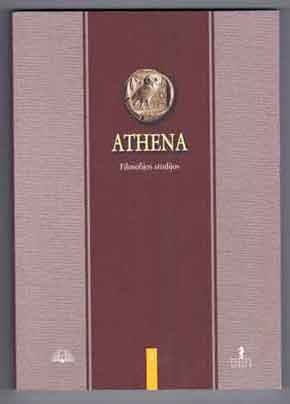Levinas ir Arendt - Alaino Finkielkrauto refleksijos apie Kitą filosofinės ištakos
Levinas and Arendt - Philosophical Origins of Alain Finkielkraut’s Reflection on the Other
Author(s): Katarzyna Liszka, Rafał WłodarczykSubject(s): Philosophy
Published by: Lietuvos kultūros tyrimų
Summary/Abstract: Alain Finkielkraut is considered as one of the most important figures in the intellectual scene of French socio-political thought. Our aim here was to present his work as rooted in the philosophical thinking of both Emmanuel Lévinas and Hannah Arendt. Therefore, we emphasized the connection between Finkielkraut’s analysis of the crisis of contemporary culture and his interpretation of Lévinas’s philosophical thought, as well as Arendt’s which, we believe, does not seem obvious. In the first part of our paper, we focused on the main notions developed by Arendt and Lévinas that also became essential to Finkielkraut’s critical approach – which is the notion of Otherness, responsibility, justice, understanding of politics and public sphere. We attempted to grasp the connection between two crucial issues: his ethical-political reading of Lévinas, as well as Arendt’s thought and his critical approach applied to investigate socialcultural situations, states and events. By doing so, we attempted to not only demonstrate the aptness and importance of Finkielkraut’s readings of Lévinas and Arendt that constitute considerable contributions to understanding both thinkers, but also the originality of his work that, as we believe, is of great relevance to the dilemmas of (post)modernity. The second part is based on different efforts to illustrate with examples the way the notions derived at the level of philosophical thinking are translated into the social-political mode of interpretation introduced by Finkielkraut. The necessarily selective presentation of examples starts with the issue of contemporary crisis of education. Then we deal with Finkielkraut’s concept of imaginary Jew, to pass on to the reflection on the idea of humanity and associated with the former criticism of the so called sentimental reason. In all the aforementioned examples, the notion of Otherness, as we demonstrated, plays a crucial role, be it the reflection devoted to the Jewish identity or to the idea of humanity. In his analysis, an author of In the Name of the Other insists that the exaggerated interpretations of Otherness often lead to a crisis in many spheres of socio-political practice, not to mention that they also lead to misreadings of Lévinas’s thought. With the notion of humanity, Finkielkraut not only refers directly to Lévinas’s philosophical thought on the notion of Otherness, but also to Arendt’s political thinking, which seems easier to omit...
Journal: Athena: filosofijos studijos
- Issue Year: 2008
- Issue No: 4
- Page Range: 174-185
- Page Count: 12
- Language: Lithuanian

